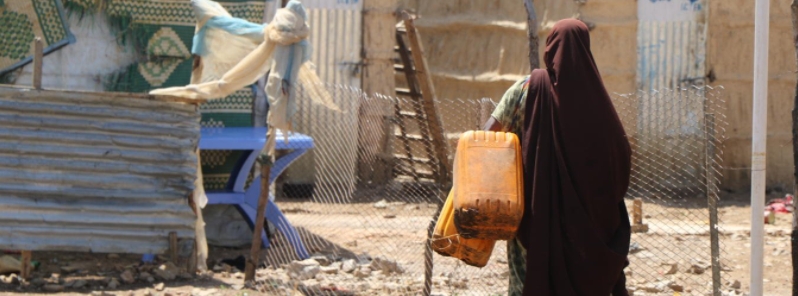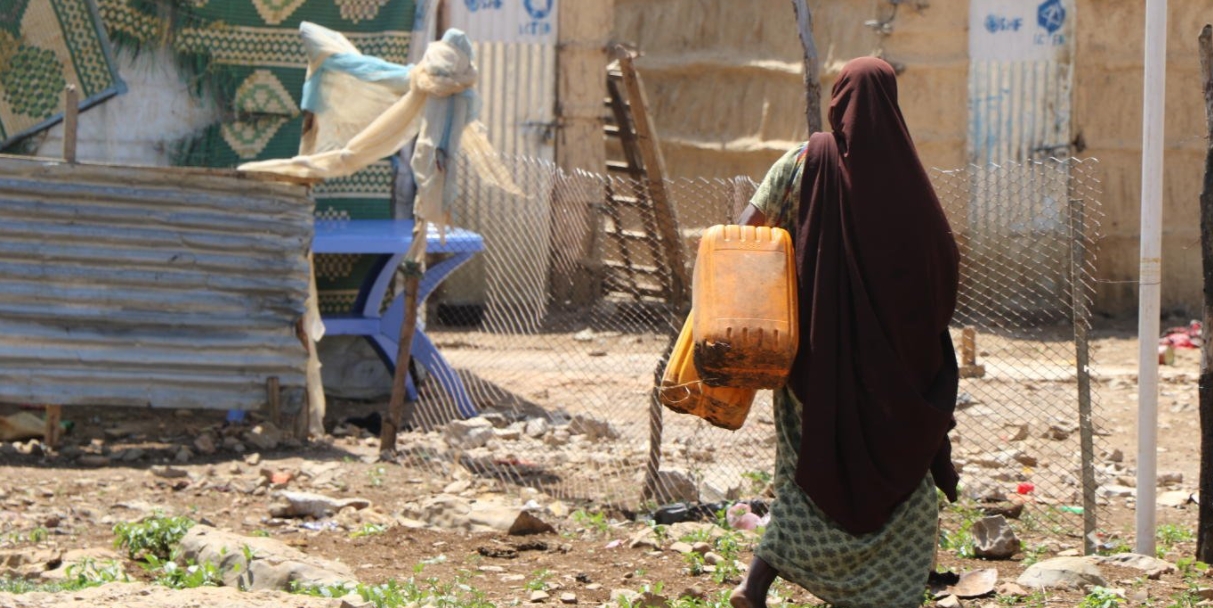Somalia bracing for record levels of displacement

Somalia is preparing for record levels of displacement this year as severe drought grips parts of the country, leaving tens of thousands of people without access to water and livelihood. In 2020, the main driver for displacement was flooding.
In 2019, Somalia saw the highest figures since 2016 with more than one million people displaced by floods, conflict, and drought. So far, 112 000 people have been displaced in the first three months of 2021, of whom 34 percent were due to drought.
"Once again Somalia is facing the prospect of serious drought. Water and pasture resources are depleting every day and resulting in people abandoning their homes with their livestock to search for better conditions," said Mohamed Abdi, Country Director for the Norwegian Refugee Council (NRC) in Somalia.
"We are worried that drought coupled with conflict could see record levels of displacement this year."
He continued, "Drought will most likely be the driving factor displacing a large number of Somalis this year due to the poor performance of seasonal rains. Our staff on the ground are reporting that more than 50 districts are currently experiencing moderate to severe drought levels and it is expected to get worse."
"It sounds contradictory, but simultaneous flooding and drought are a reality in Somalia," Abdi pointed out.

Image credit: Abdukadir Abdirahman Mohamed/NRC
"Flooding was the main driver of high displacement last year. Some rains have dropped in the past number of days so our teams on the ground are also working towards flooding preparedness and to support those in critical need. We have to prepare for all climate shocks."
The UN has appealed 1 billion dollars to assist four million Somalis in dire need of help as a result of recurring natural disasters, widespread insecurity, and the indirect economic impact of COVID-19.
"Around 13 percent of Somalia’s aid appeal has been donated so far, nowhere near enough to sustain the population as it battles drought and multiple other crises," said Abdi.
"The international community must not turn their back on Somalis, particularly pastoralist communities, who are impacted the most. We must do all we can to prevent another cycle of suffering in Somalia."
Featured image credit: Abdukadir Abdirahman Mohamed/NRC

Commenting rules and guidelines
We value the thoughts and opinions of our readers and welcome healthy discussions on our website. In order to maintain a respectful and positive community, we ask that all commenters follow these rules.